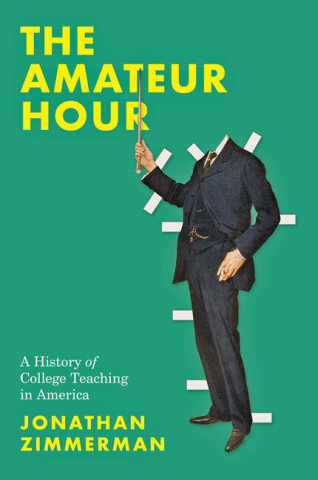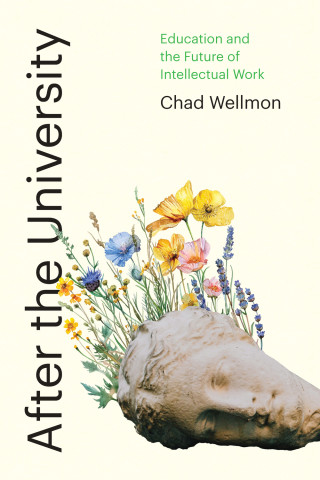
Reviews
In his provocative new book, The Amateur Hour: A History of College Teaching in America, historian Jonathan Zimmerman chronicles more than 200 years of the quality of instruction in higher education. It's a history filled with noble but failed efforts to improve and reform college teaching, marked by student-led protests and solitary campaigns led by individual professors or administrators.
His story is not for pollyannas, but rather for those who relish absurdity, black humor, irony, and, I fear, dashed dreams and heartbreak.
The Amateur Hour is the book to read now as we ponder our post-COVID higher education future.
Zimmerman excels in discussing the stories of great lecturers and efforts for reform.
This is a great book and a worthy read for those interested in college teaching.
This important contribution to scholarship will be welcomed by historians of education, scholars of higher education, as well as faculty and administrators more generally. It should also find an audience in the broader public because it explains why the college classroom functions the way it does.
No one has ever collected these stories in one place nor written about them with such compelling style. Full of engaging vignettes, this refreshing book does a terrific job of distilling the themes of amateurism and personalization while chronicling the history of our failed attempts to improve, or at least systematize, college instruction.
An informative and engaging account of how teaching has been viewed—but not assessed—throughout the history of American higher education. Zimmerman tells a lively story of ongoing resistance to solving obvious problems while also offering suggestions for improvement, calling attention to the need for communities of teachers that can function as constructively as communities of scholars.
In finely-honed prose, The Amateur Hour limns twentieth-century reformers' earnest, and ultimately futile, efforts to persuade colleges to take teaching seriously. It belongs on the bookshelf of everyone—professors and administrators alike—with a stake in how we're educating our undergraduates.
An entertaining and insightful account of efforts to improve college teaching. Zimmerman shows that today's issues—the promise (or menace) of technology, priority of research over teaching, grade inflation, course evaluations, political coercion, job insecurity—are not new but have a long history. A valuable book for anyone concerned with how professors can better serve students now as well as in the post-pandemic future.
With a historian's eye and a teacher's love, Zimmerman makes visible the oft-hidden—and largely entrenched—world of postsecondary teaching. A must-read for all who wish to untangle the complexities and contradictory themes that remain at the heart of American higher education. We can't improve what we don't understand; The Amateur Hour helps us understand.
Book Details
Preface
Acknowledgments
Introduction. Personality over Bureaucracy: The Paradox of College Teaching in America
Chapter One. Between the Two Ends of the Log: Teaching and Learning in the Nineteenth
Preface
Acknowledgments
Introduction. Personality over Bureaucracy: The Paradox of College Teaching in America
Chapter One. Between the Two Ends of the Log: Teaching and Learning in the Nineteenth Century
Chapter Two. Scholarship and Its Discontents: Teaching and Learning in the Progressive Era
Chapter Three. The Curse of Gigantism: Mass-Produced Education and Its Critics in Interwar America
Chapter Four. "Teaching Made Personal": Reform and Its Limits in Interwar College Teaching
Chapter Five. Expansion and Repression: Cold War Challenges for College Teaching
Chapter Six. TV or Not TV? Reforming Cold War College Teaching
Chapter Seven. The University under Attack: College Teaching in the 1960s and 1970s
Chapter Eight. Experimentation and Improvement: Reforming Teaching in the 1960s and 1970s
Epilogue. The Decade of the Undergraduate? College Teaching in the 1990s and Beyond
Appendix. Archives of College Teaching
Notes
Index






